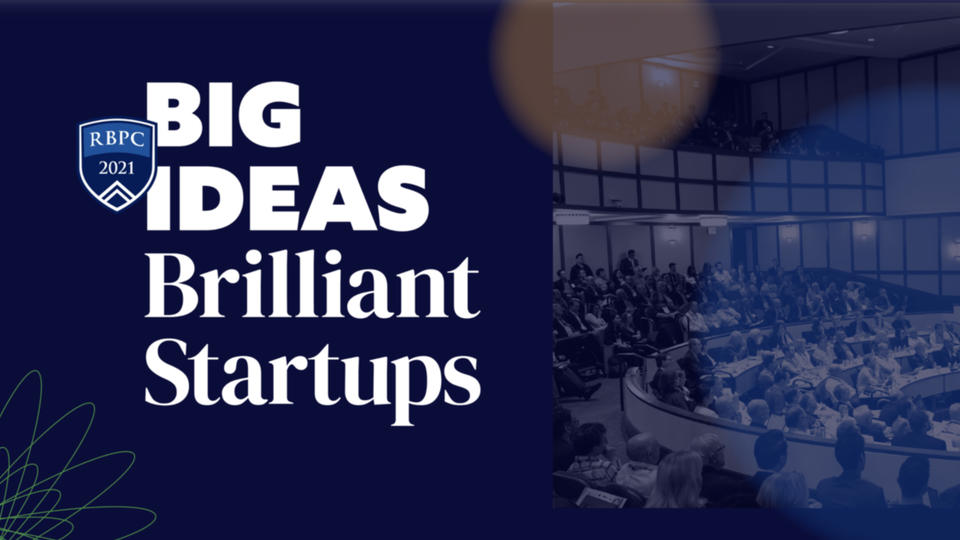Meet the Faculty
Seven new faculty members joined Rice Business this fall. We asked them each to describe their area of specialization — and what makes it special.

Assistant Professor of Marketing
Piyush Anand
Assistant Professor of Marketing
What’s the focus of your research?
My research examines how machine learning methods can enrich managers’ and regulators’ understanding of consumer and firm behavior. I use methods from computer vision, natural language processing and machine learning to answer research problems in topics such as e-cigarette taxes, consumer data privacy and corporate culture.
How might your findings affect the everyday life of the average person?
One of my working papers proposes a novel approach using machine learning that addresses the privacy and scalability concerns of managers who need to transfer firms’ sensitive customer data to third parties such as researchers. Another working paper proposes publicly available employee reviews as an information source for consumer harm crises — managers can assess culture at their firm and regulators can flag firms at risk of a crisis.
What’s the most surprising thing you’ve discovered in the course of your research?
Customers, employees and other stakeholders often voice their views publicly online. The answers to questions that managers, investors and regulators seek could be hidden in plain sight, but inaccessible due to the scope and scale of the data. What is fascinating about machine learning is that these tools can be very useful to automatically extract signals from large-scale unstructured data, such as text and images.

Assistant Professor of Accounting
Petri Ferreira
Assistant Professor of Accounting
What’s the focus of your research?
My research focuses on financial reporting, with a specific focus on standard setting. Standard setting is the process through which a regulator issues new accounting rules — also referred to as accounting standards.
How might your findings affect people’s lives?
The findings of my work could affect which information is presented to investors and how it is presented, which would assist in their decision-making process.
What’s the most surprising thing you’ve discovered in the course of your research?
The most surprising thing I discovered is how complex the standard-setting process is. The standard setter has to balance the needs of various interested parties. For example, an accounting rule might provide more precise information to investors but come at the cost of divulging some of the firm’s proprietary information. Standard setting is a delicate balancing act that requires input from various parties, including academics.

Assistant Professor of Accounting
Stefan Huber
Assistant Professor of Accounting
What’s the focus of your research?
My research focuses on how accounting information and measurement can change business decisions. My most recent research examines how alternative rules for loan loss measurement influence bank lending decisions.
How might your findings affect the everyday life of the average person?
My findings show how accounting rules can affect the availability of credit in the economy — or whether people can get mortgages to buy new homes or loans to start a new business.
What’s the most surprising thing you’ve discovered in the course of your research?
I found it fascinating to develop a toolkit that allows me to provide an evaluation of the effects of new accounting rules before they are even implemented. Many banks and politicians offered intense criticism when standard setters issued a new rule for loan loss measurement and asked for an ex-ante (or beforehand) evaluation of the economic effects. So far, however, we have only quantitatively examined the economic effects after rules have been implemented. With my research, I show a way to do this ex-ante, which can be a valuable tool for standard setting in the future.

Assistant Professor of Finance
Ali Kakhbod
Assistant Professor of Finance
What’s the focus of your research?
I am a financial economist with research interests in financial intermediation, liquidity, contracts, banking, financial crisis, big data and machine learning.
How might your findings affect the everyday life of the average person?
My research looks at various informational settings and their financial and economic implications. For example: How does information disclosure in over-the-counter markets [in which participants trade directly, without an exchange or broker] affect market efficiency and liquidity? When does securitization lead to financial crisis? Why is there heterogeneity in the means of providing advice in corporate governance?
What’s the most surprising thing you’ve discovered in the course of your research?
A common concern about OTC markets is their opaqueness. Given the important role they played in the global financial crisis, many regulators have attempted to shed some light on these so-called dark markets. Perhaps the most notable reform aiming to increase market liquidity was the U.S. Dodd-Frank Act, implemented after the 2008 financial crisis. My research shows that more transparency, via the public disclosure of additional information about past trades, paradoxically makes the markets more opaque by reducing market price informativeness. However, this opacity is beneficial because it increases market liquidity and welfare. Therefore, there exists a trade-off between price informativeness, liquidity and welfare in the OTC markets.

Assistant Clinical Professor of Finance
Natalia Piqueira
Assistant Clinical Professor of Finance
What’s the focus of your research?
My areas of research are related to financial markets and empirical finance, and in particular the fields of short selling, behavioral biases and market microstructure.
How might your findings affect the everyday life of the average person?
The trades of certain groups of informed investors reveal information about subsequent stock returns. Informed traders may actually exploit other investors’ behavioral biases.
What’s the most surprising thing you’ve discovered in the course of your research?
We found evidence that even groups of investors considered sophisticated and informed may be susceptible to behavioral biases, such as anchoring biases associated with recent price peaks.

Professor of Management
Tolga Tezcan
Professor of Management
What’s the focus of your research?
My research explores new ways of designing and managing healthcare delivery systems. I have collaborated with customer contact centers and hospitals to address issues relating to access.
How might your findings affect the everyday life of the average person?
My main goal is to improve the access/cost trade-off in service systems; most recently, I’ve been focusing on healthcare systems. Anyone who doesn’t like to wait should benefit from the results.
What’s the most surprising thing you’ve discovered in the course of your research?
Not surprising, maybe, but: To improve something, you need to measure it to compare it and get better results.

Lecturer in Communication
Ginger Vaughn
Lecturer in Communication
What’s the focus of your teaching?
I aim to help raise awareness around strategic business communication and give students the opportunity to practice ways to improve oral, written and intercultural communication in the workplace.
How might the topics you teach affect the everyday life of the average person?
In my course, we highlight various practical skills, including strategy and structure around better writing and presenting, confidence around public speaking, and implementing new communication skills. These skills may sound basic, but can really improve relationships and outcomes you have with your audience, whether they are colleagues, peers, family or friends.
What’s the most surprising thing a student might learn from one of your classes?
From the very start of the MBA program, during Launch, students in my course are required to submit an oral and written assessment as a benchmark of their communication skills. By the end of the semester, many are surprised and really proud to see the progress they’ve made, not only in their academic work at Rice Business but also their own contributions at work — mainly through active participation, sharing feedback with peers, and of course practice.


